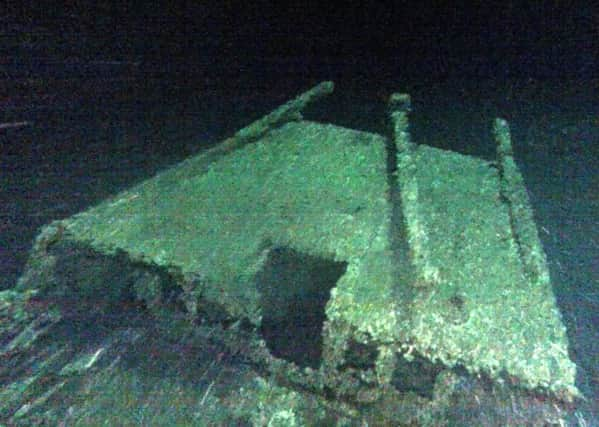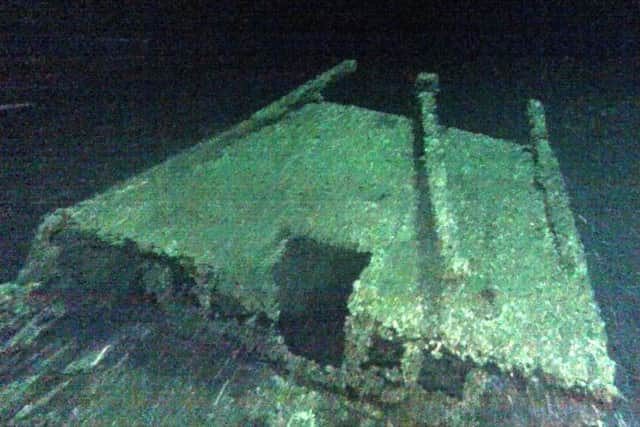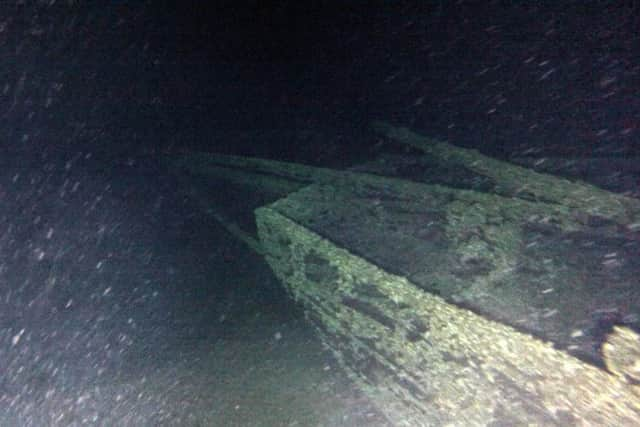'˜Rare' wreck of 144-year-old ship found in Lake Ontario


The Black Duck sank while transporting goods during stormy weather close to the lake’s eastern end in August 1872.
The three people on board the vessel - captain Barney Everleigh, his wife and crew member Willie Decker - survived, eventually making it to shore in a small boat.
Advertisement
Hide AdAdvertisement
Hide AdDecker had plunged into the water during the storm to keep the small boat or punt, from drifting away. The trio then lay in the punt and let the wind blow them back to shore.


Only intact sloop in the Great Lakes
The vessel was identified as a scow-sloop - a 51ft-long, single-mast vessl used primarily for transporting cargo.
Experts say the design of scow-sloops made it easier for the boats to unload cargo on beaches.
Underwater explorers Roger Pawlowski and Jim Kennard announced last week that they had identified the wreck as the Black Duck in September, some three years after uncovering the remains using sonar in deep water off Oswego, NY.


The wreck is thought to be the only completely intact scow-sloop to exist in the Great Lakes.
Just a handful of scow-sloops are believed to have sailed the Great Lakes, with Kennard revealing that a search of ship-building records suggested only 11 or 12 scow-sloops had been built in the region.
Vessels such as the Black Duck were primarily used on rivers or for short trips on the Great Lakes, and as such weren’t built to handle high winds and waves in open water.
Secret cargo?


The Black Duck appears to have been caught in galeforce winds and went down in Mexico Bay as it made the journey from Oswego to Dexter or Sackett’s Harbor in early August 1872 with 30 tons of coal on board.
Advertisement
Hide AdAdvertisement
Hide AdBut records show the ship could only realistically manage a little over 20 tons, with the extra weight a likely contributing factor in the ship’s demise.
A book titled Old Shipping Days in Oswego records the Black Duck’s final cargo as whiskey, suggesting that the vessel may have been carring both coal and liquor.
However, there are no other sources that record the Black Duck’s cargo as including whiskey, and years of silt has filled the ship’s cargo hold, obscuring the view.


Other discoveries
The discovery of the Black Duck marks the second sloop wreckage that Kennard and Pawlowski have found this year.
In August the pair, along with Roland ‘Chip’ Stevens, found the wreck of the Washington, which sank during a storm in 1803 while Kennard and another underwater explorer, Dan Scoville, found the British warship HMS Ontario in the Great Lakes in June 2008.
HMS Ontario sank in a storm during the American Revolutionary War, less than six months after she was launched. Around 130 are thought to have lost their lives in the sinking.